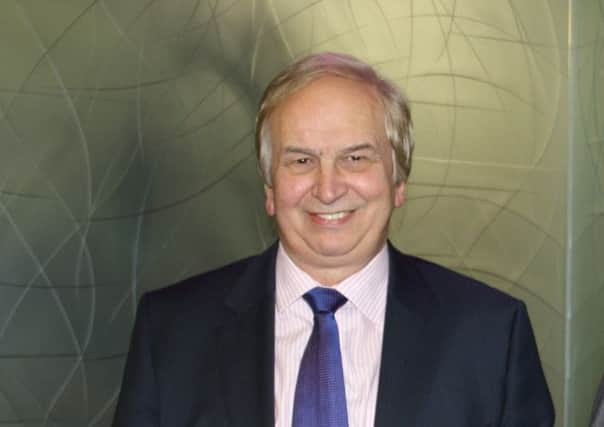Bondholders rush for exit at Towergate


The company’s bonds have sunk to record lows after Towergate published a report saying it had maxed out of its RCF, increasing to £85m from £43m drawn last September.
Revolving credit facilities are generally used by businesses to cover short term liquidity needs. By fully drawing on it, Towergate now has no safety net to cover liquidity shortfalls.
Advertisement
Hide AdAdvertisement
Hide AdIn the report to bondholders, Towergate said it has not yet breached its financial covenant, but that it has had to enter discussions with lenders to renegotiate the terms as “the group may be unable to satisfy its financial covenant going forward”.
The liquidity crisis is so severe that Towergate has told bondholders “it has to be recognised that there is material uncertainty which may cast significant doubt as to the group’s ability to continue as a going concern”.
Towergate’s unsecured bonds were getting hammered. The £304.6m 10.5 per cent 2019 senior bonds opened at a cash price of 61.25, according to Tradeweb, but lost more than twenty points to a bid of 38.
“There’s a coupon payment due in February and the market does not think Towergate can meet it,” said an analyst at a hedge fund.
Advertisement
Hide AdAdvertisement
Hide Ad“A white knight could step in, but they’d almost certainly haircut the unsecured bonds anyway.”
The “white knight” refers to the group’s announcement that it has received approaches from parties interested in potentially acquiring the group, and that it has consequently appointed Evercore and Rothschild as joint advisers to support the evaluation of proposals.
Private equity firm Advent International is Towergate’s largest shareholder. The group has debts of nearly £1bn.
Alastair Lyons, interim executive chairman of Towergate, said: “Towergate is a unique asset for someone to own in this industry.
Advertisement
Hide AdAdvertisement
Hide Ad“The approaches we have received underline this and are testament to the group’s strength in its primary markets.
“Whilst there can be no certainty that these approaches will result in a sale, it is our responsibility as a board to evaluate them thoroughly.”
Mark Hodges quit as chief executive last month. The former Aviva UK chief had decided that “now is the right time to hand over the baton”, said Mr Lyons.
Towergate yesterday reported a pre-tax loss of £112.7m in the nine months to September 30, which it blamed on lower operating earnings, business investment costs and impairment charges.
Advertisement
Hide AdAdvertisement
Hide AdThe group, which employs 300 staff across 10 centres in Yorkshire, said operating earnings fell 14 per cent to £95.9m, while overall income edged down 1 per cent to £328.5m.
The group is going through a major restructuring programme.
Mr Lyons said: “While implementation of these changes is taking longer than expected, they will position the business for future organic growth and the delivery of significant efficiency gains.”
Entrepreneur Peter Cullum founded Towergate in 1997.
Industry consolidator acquired nearly 300 firms
Private equity firm Advent International took a 45 per cent stake in Towergate in 2011.
Advertisement
Hide AdAdvertisement
Hide AdThe group hired Mark Hodges, the UK head of Aviva, to make the group more effective and more efficient.
Towgergate grew by acting as an industry consolidator and has acquired nearly 300 underwriting and broking firms since entrepreneur Peter Cullum founded the company in 1997.
Ratings agency Fitch said Mr Hodges’ resignation had heightened uncertainty about the group’s ability to “extract the planned operational efficiencies”.